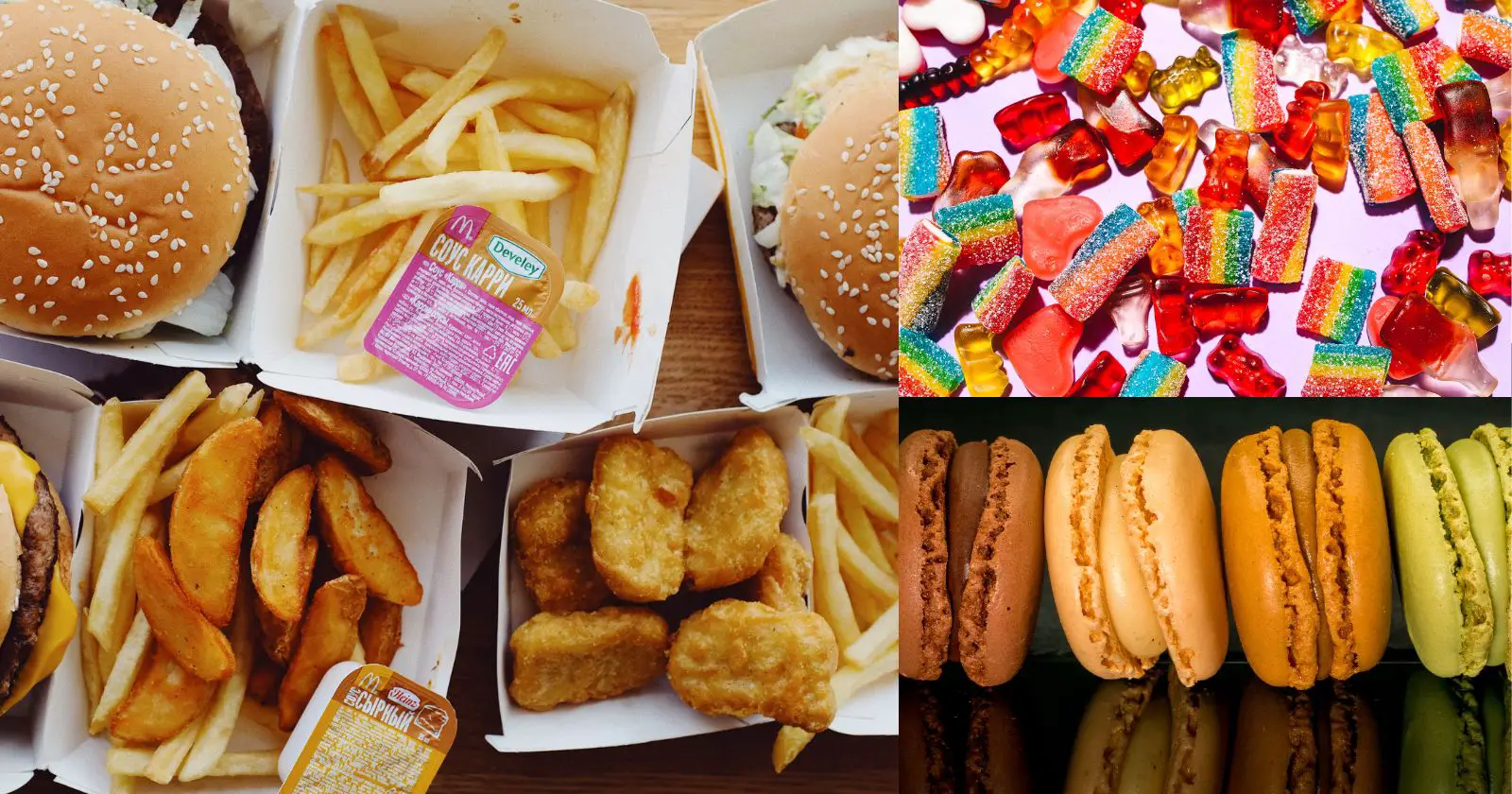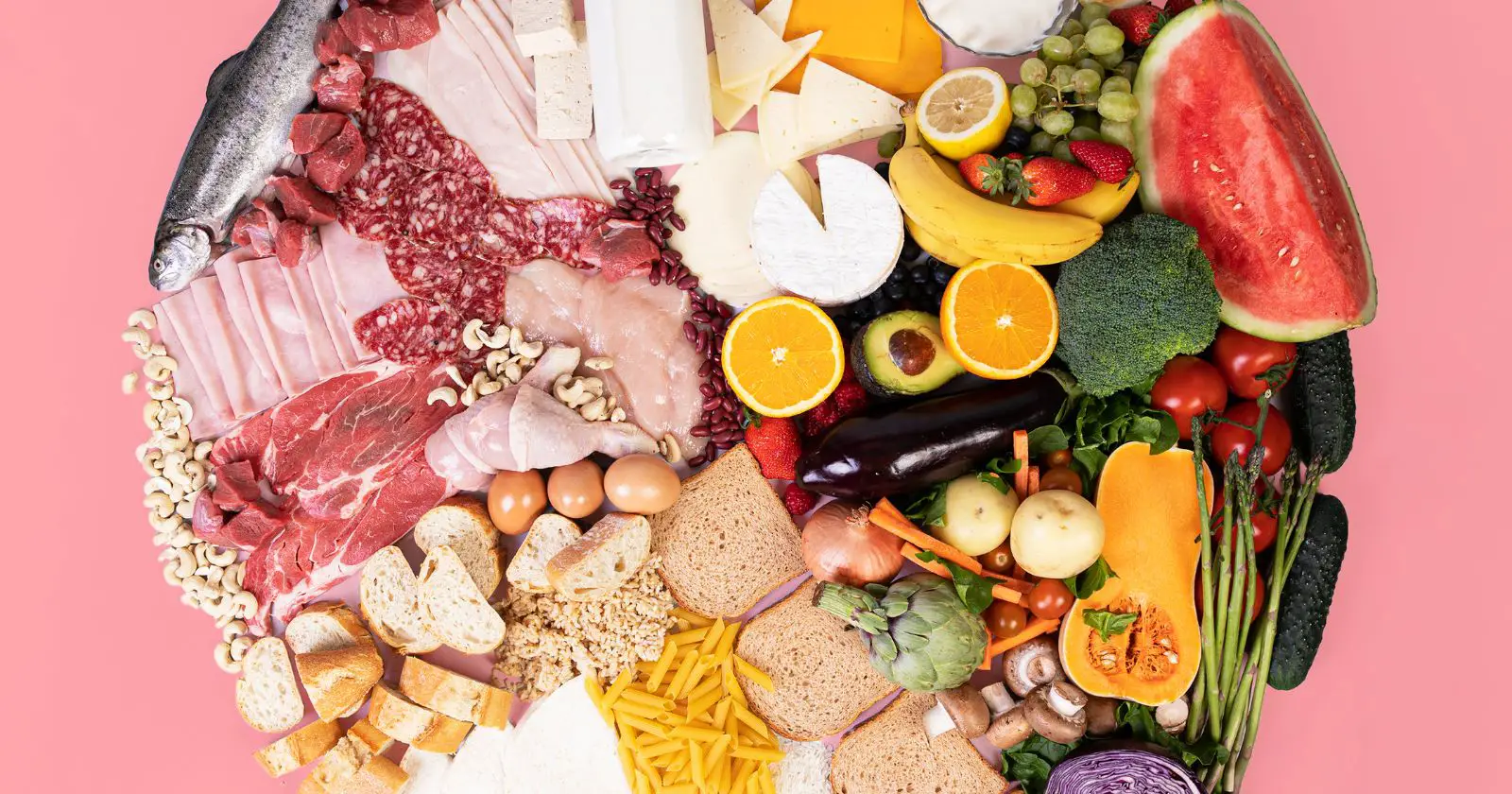If you’re looking to slim down, one of the most important factors to consider is your nutrition. Eating a balanced diet that is rich in nutrients and low in calories is essential for weight loss. However, with so many different diets and meal plans out there, it can be challenging to know where to start.
Understanding nutrition for slimming down is crucial. You need to know which foods to eat and which ones to avoid. A balanced diet that includes plenty of fruits, vegetables, lean protein, and whole grains is key. These foods are low in calories and high in nutrients, making them an excellent choice for weight loss.
Meal planning is also an essential aspect of slimming down. Planning your meals in advance can help you make healthier food choices and avoid impulsive eating. It can also save you time and money. By creating a meal plan that includes a variety of healthy foods, you can ensure that you’re getting all the nutrients your body needs while staying within your calorie goals.

Key Takeaways
- Understanding nutrition and meal planning is crucial for slimming down.
- A balanced diet that includes plenty of fruits, vegetables, lean protein, and whole grains is key.
- Planning your meals in advance can help you make healthier food choices and avoid impulsive eating.
Understanding Nutrition for Slimming Down
When it comes to slimming down, nutrition plays a crucial role. Understanding the basics of nutrition can help you make informed choices about your diet and achieve your weight loss goals. Here are some key concepts to keep in mind:
Calories
To lose weight, you need to create a calorie deficit, which means burning more calories than you consume. This can be achieved through a combination of diet and exercise. A pound of fat contains approximately 3,500 calories, so to lose one pound per week, you need to create a deficit of 500 calories per day.
Macronutrients
Macronutrients are the three main nutrients that provide energy: carbohydrates, protein, and fat. Each macronutrient plays a different role in the body and has a different effect on hunger and satiety.
- Carbohydrates: Carbs are the body’s primary source of energy. They are found in foods like bread, pasta, and rice. Complex carbohydrates, such as those found in whole grains, fruits, and vegetables, are preferred over simple carbohydrates, such as those found in sugary drinks and snacks.
- Protein: Protein is important for building and repairing tissues in the body. It is found in foods like meat, fish, eggs, and beans. Protein can help you feel full and satisfied, which can aid in weight loss.
- Fat: Fat is essential for many bodily functions, including the absorption of certain vitamins and minerals. It is found in foods like nuts, seeds, and oils. Healthy fats, such as those found in avocados and salmon, can help you feel full and satisfied, but it’s important to limit your intake of saturated and trans fats.
Micronutrients
Micronutrients are the vitamins and minerals that the body needs in small amounts to function properly. Eating a variety of fruits, vegetables, whole grains, and lean proteins can help ensure that you are getting all of the micronutrients you need.
Portion Control
Even healthy foods can contribute to weight gain if you eat too much of them. Portion control is key to achieving and maintaining a healthy weight. Using smaller plates, measuring your food, and paying attention to your hunger and fullness cues can all help you eat the right amount for your body.
By understanding the basics of nutrition, you can make informed choices about your diet and achieve your weight loss goals. Remember to focus on creating a calorie deficit, eating a variety of macronutrients and micronutrients, and practicing portion control.
Importance of Balanced Diet
If you want to slim down, you need to make sure that you are eating a balanced diet. This means that you need to include the right amount of proteins, carbohydrates, and fats in your meals. Each of these macronutrients plays an important role in your body, and you need to make sure that you are getting enough of each one.
Role of Proteins
Proteins are essential for building and repairing tissues in your body. They also help to keep you feeling full and satisfied after meals. If you are trying to slim down, you should aim to include lean sources of protein in your meals, such as chicken, fish, beans, and tofu. These foods are low in calories and high in protein, which makes them ideal for weight loss.
Role of Carbohydrates
Carbohydrates are your body’s main source of energy. However, not all carbohydrates are created equal. You should aim to include complex carbohydrates in your meals, such as whole grains, fruits, and vegetables. These foods are high in fiber and other nutrients, which will help you feel full and satisfied after meals. Avoid simple carbohydrates, such as sugar and refined grains, which can cause spikes in your blood sugar levels and lead to overeating.
Role of Fats
Fats are important for your body to function properly. They help to insulate your body and protect your organs. However, not all fats are created equal. You should aim to include healthy fats in your meals, such as avocados, nuts, and olive oil. These foods are high in monounsaturated and polyunsaturated fats, which are good for your heart and can help you feel full and satisfied after meals. Avoid saturated and trans fats, which can increase your risk of heart disease and other health problems.
By including the right amount of proteins, carbohydrates, and fats in your meals, you can ensure that your body is getting the nutrients it needs to function properly. This will help you slim down and achieve your weight loss goals.
Meal Planning for Weight Loss
If you are trying to lose weight, one of the most important things you can do is plan your meals. Meal planning can help you control your calorie intake, ensure you are getting the nutrients your body needs, and prevent you from making impulsive food choices.
Portion Control
Portion control is a key component of meal planning for weight loss. It is important to understand what a serving size looks like for different types of foods. You can use measuring cups, a food scale, or visual cues to help you determine appropriate portion sizes.
Another helpful tool for portion control is using smaller plates, bowls, and cups. This can help you feel like you are eating more food, even if you are consuming fewer calories.
Meal Frequency
The frequency of your meals is also important for weight loss. Eating frequent, smaller meals throughout the day can help keep your metabolism revved up and prevent overeating. Aim for three meals and two snacks per day, spaced out every 3-4 hours.
Importance of Hydration
Drinking enough water is important for overall health and weight loss. Staying hydrated can help you feel full and prevent overeating. Aim for at least 8-10 cups of water per day, and avoid sugary drinks like soda and juice.
In addition to water, you can also incorporate other hydrating beverages like herbal tea or infused water. Just be mindful of added sugars and calories in flavored drinks.

By planning your meals with portion control, meal frequency, and hydration in mind, you can set yourself up for success in your weight loss journey. Remember to focus on whole, nutrient-dense foods and listen to your body’s hunger and fullness cues.
Healthy Food Choices
If you’re looking to slim down, making healthy food choices is key. Here are some tips for choosing foods that will help you reach your goals:
Choosing Whole Foods
One of the best things you can do for your body is to choose whole foods. These are foods that are as close to their natural state as possible, with minimal processing. Examples of whole foods include:
- Fresh fruits and vegetables
- Whole grains like brown rice, quinoa, and oats
- Lean proteins like chicken, fish, and tofu
- Nuts and seeds
By choosing whole foods, you’ll be giving your body the nutrients it needs to function at its best. Plus, these foods tend to be more filling than processed foods, so you’ll be less likely to overeat.
Incorporating Fruits and Vegetables
Fruits and vegetables are some of the healthiest foods you can eat. They’re packed with vitamins, minerals, and fiber, and they’re low in calories. Aim to incorporate at least five servings of fruits and vegetables into your diet each day.
Here are some easy ways to add more fruits and vegetables to your meals:
- Add berries to your morning oatmeal or yogurt
- Snack on carrot sticks or sliced bell peppers with hummus
- Make a big salad for lunch or dinner, with lots of colorful veggies
- Roast a variety of vegetables and serve them as a side dish with dinner
Limiting Processed Foods
Processed foods are often high in calories, sugar, and unhealthy fats. They can also be low in nutrients. While it’s okay to enjoy processed foods in moderation, it’s best to limit your intake if you’re trying to slim down.

Here are some tips for cutting back on processed foods:
- Choose whole grain bread instead of white bread
- Swap sugary drinks for water or unsweetened tea
- Make your own snacks, like air-popped popcorn or roasted chickpeas
- Read food labels and choose products with fewer ingredients and less added sugar and salt
By making these healthy food choices, you’ll be well on your way to achieving your weight loss goals. Remember to focus on progress, not perfection, and to enjoy the journey towards a healthier you.
Role of Exercise in Slimming Down
If you are trying to slim down, exercise plays a crucial role in achieving your goal. Regular exercise helps you burn calories and lose weight. It also helps you maintain your weight loss by increasing your metabolism and building lean muscle mass.
To maximize your weight loss, you should aim for at least 30 minutes of moderate-intensity aerobic exercise per day. You can also incorporate strength training exercises to build muscle and boost your metabolism.
Some effective exercises for weight loss include:
- Brisk walking
- Running or jogging
- Cycling
- Swimming
- High-intensity interval training (HIIT)
- Resistance training with weights or bodyweight exercises
It’s important to find an exercise routine that you enjoy and can stick to in the long term. Consistency is key when it comes to seeing results from exercise.
In addition to burning calories, exercise can also help you make healthier food choices. Studies have shown that regular exercise can reduce cravings for unhealthy foods and increase your desire for nutritious foods.
However, exercise alone is not enough to achieve significant weight loss. To see real results, you need to combine exercise with a healthy diet. A diet that is high in protein, fiber, and healthy fats can help you feel full and satisfied while also supporting your weight loss goals.
In summary, exercise is an essential component of a weight loss plan. It helps you burn calories, build muscle, and maintain your weight loss. To see the best results, aim for at least 30 minutes of moderate-intensity exercise per day and combine it with a healthy diet.
Impact of Lifestyle Choices
When it comes to slimming down, the food you eat is just one part of the equation. Your lifestyle choices can have a significant impact on your weight loss journey. Here are a few lifestyle factors that you should consider:
Importance of Sleep
Getting enough sleep is crucial when it comes to losing weight. Lack of sleep can lead to hormonal imbalances that can increase your appetite and make it harder to resist unhealthy food choices. Aim for at least 7 hours of sleep every night to avoid poor eating habits and keep your metabolism functioning optimally.
Stress Management
Stress can be a major obstacle when it comes to weight loss. When you’re stressed, your body produces cortisol, a hormone that can increase your appetite and cause you to store fat in your belly. Find ways to manage your stress, such as meditation, yoga, or deep breathing exercises. Incorporating stress-relieving activities into your daily routine can help you stay on track with your weight loss goals.
Avoiding Alcohol
Alcohol is high in calories and can slow down your metabolism, making it harder to lose weight. Additionally, alcohol can lower your inhibitions and lead to overeating or indulging in unhealthy food choices. Try to limit your alcohol consumption or avoid it altogether.
Smoking
Smoking can have a negative impact on your weight loss journey. Nicotine can suppress your appetite, leading to weight loss in the short term. However, smoking can also damage your lungs and cardiovascular system, making it harder to exercise and maintain a healthy weight in the long term. Quitting smoking can be challenging, but it can have a significant positive impact on your overall health and weight loss goals.
By making small lifestyle changes, you can support your weight loss journey and achieve your goals. Remember to prioritize sleep, manage your stress, avoid alcohol, and quit smoking to optimize your chances of success.
Long-Term Sustainability of Weight Loss
Sustaining weight loss over the long-term can be a challenging undertaking. Many people who lose weight eventually regain it. However, with the right approach, it is possible to maintain weight loss and keep the pounds off for good.
One effective strategy for long-term weight loss is to adopt a healthy eating pattern that you can maintain over time. This could include reducing your calorie intake, increasing your consumption of fruits and vegetables, and limiting your intake of processed and high-fat foods. You may also want to consider incorporating more whole grains, lean protein, and healthy fats into your diet.
Another key factor in maintaining weight loss is regular physical activity. Engaging in regular exercise can help you burn calories, build muscle, and boost your metabolism. Aim for at least 150 minutes of moderate-intensity exercise per week, such as brisk walking, cycling, or swimming.
It’s also important to establish healthy habits that can support your weight loss efforts over the long-term. This could include things like meal planning, tracking your food intake, and finding healthy ways to cope with stress. You may also want to consider seeking support from friends, family, or a healthcare professional to help you stay on track.
Finally, it’s important to remember that sustainable weight loss is a gradual process that requires patience and persistence. It’s not about quick fixes or fad diets, but rather about making long-term lifestyle changes that you can stick to over time. With the right mindset and approach, you can achieve your weight loss goals and maintain a healthy weight for life.
Frequently Asked Questions
What are some weight management programs available online?
There are many weight management programs available online that can help you achieve your weight loss goals. Some popular programs include Weight Watchers, Noom, and MyFitnessPal. These programs offer personalized meal plans, exercise tracking, and support from a community of like-minded individuals. It’s important to do your research and choose a program that aligns with your goals and lifestyle.
What are some natural foods that promote weight loss?
There are many natural foods that can help promote weight loss. Some examples include:
- Leafy greens like spinach and kale
- Whole grains like quinoa and brown rice
- Lean proteins like chicken and fish
- Fruits like berries and apples
- Nuts and seeds like almonds and chia seeds
These foods are high in nutrients and fiber, which can help you feel full and satisfied while consuming fewer calories.
What is a beginner diet plan for female weight loss?
A beginner diet plan for female weight loss should focus on balanced meals that are high in protein, fiber, and healthy fats. Some examples of meals include:
- Breakfast: Greek yogurt with berries and almonds
- Snack: Apple slices with almond butter
- Lunch: Grilled chicken salad with mixed greens and avocado
- Snack: Carrots and hummus
- Dinner: Baked salmon with roasted vegetables
It’s important to listen to your body and eat when you’re hungry, but also be mindful of portion sizes and avoid overeating. Additionally, staying hydrated by drinking plenty of water can help support weight loss efforts.

